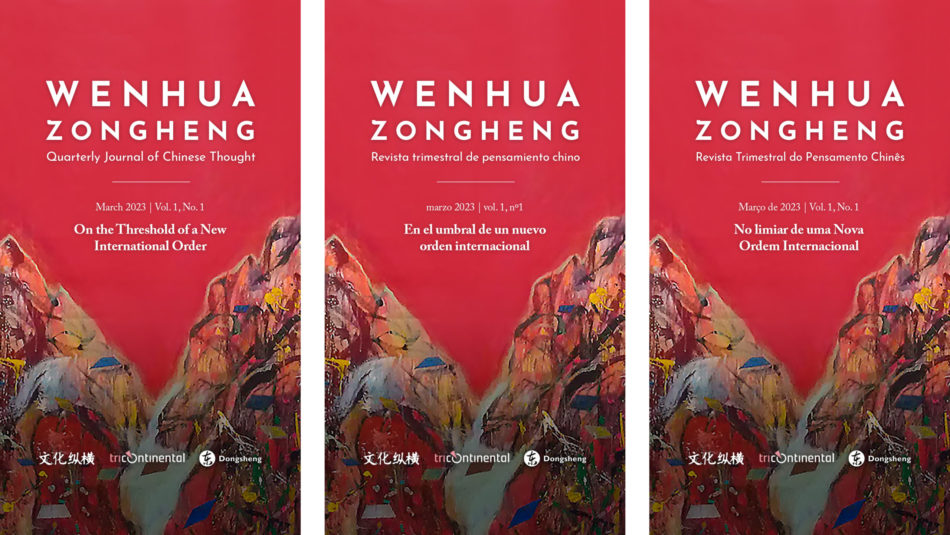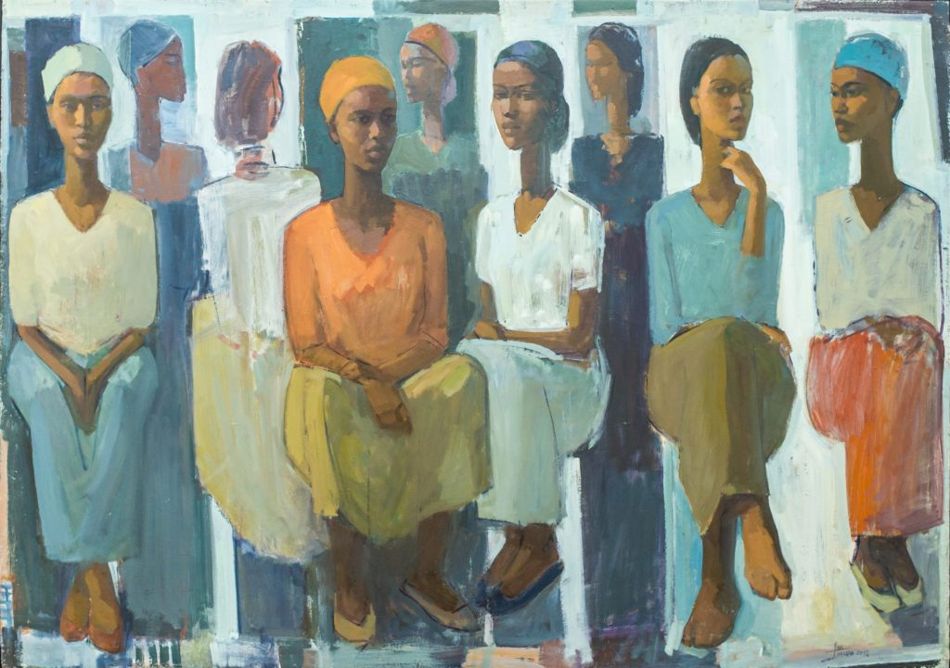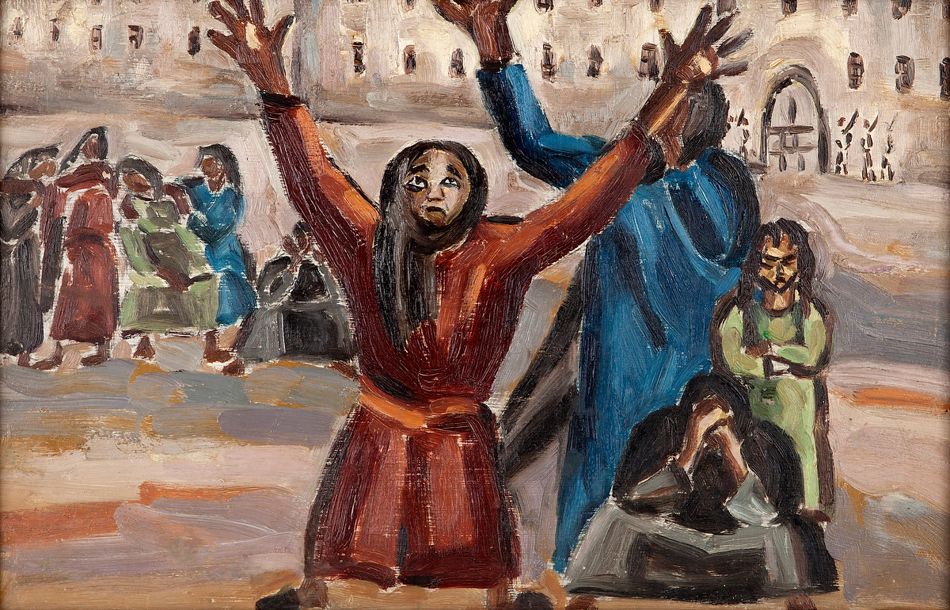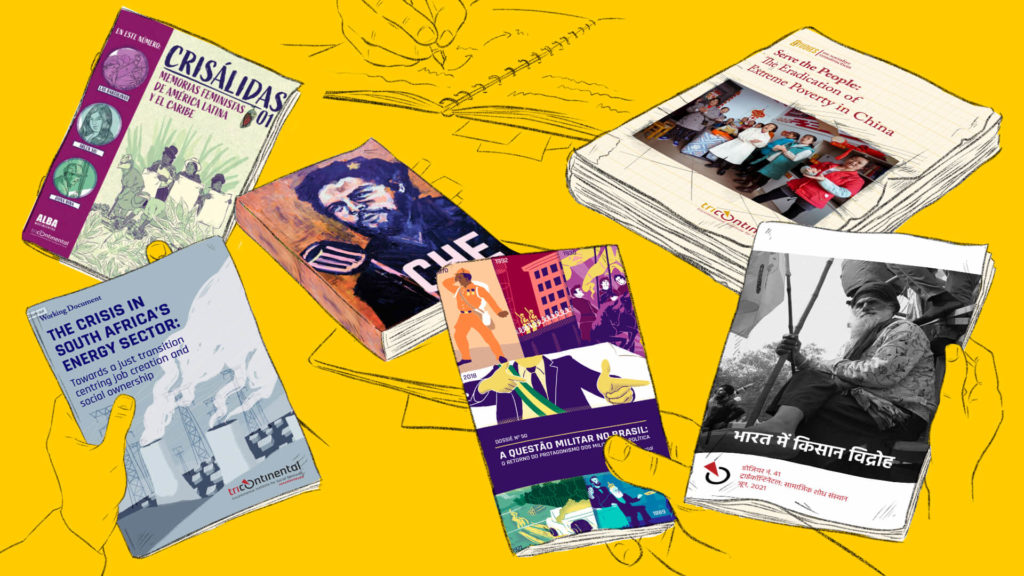Vijay Prashad says the expanding IMF-driven debt crisis, which has converted the idea of “financing for development” into “financing for debt servicing,” bears watching while China waives debt to 17 African nations.
Tricontinental: Institute for Social Research
 The first newsletter of the Tricontinental Institute for Social Research in March 2018 posed a problem that remains at the heart of the institute’s work:
The first newsletter of the Tricontinental Institute for Social Research in March 2018 posed a problem that remains at the heart of the institute’s work:
“The Left has before us a serious challenge: people think that we are good and sensitive people, but that we are utopian and fail to provide reasonable answers to practical problems. We have to overcome this penalty. We have to show that radical thinking is not merely utopian (and has no place in reality), but that it attempts to solve practical challenges given the constraints of property and power.
It has to show, more importantly, how certain problems cannot be solved within these constraints and require more ambitious transformations of the political and economic system. This kind of thinking — guided by political and social movements — will be at the heart of the institute.”
Over the course of the past 62 months, the institute has tried its best to hold fast to this mission. To this end, a series of objectives were set:
- To bridge the gap between movements and intellectual institutions.
- To bridge the gap between movements across the planet.
- To amplify the voices of the new intellectuals who lead these movements.
- To elaborate the theories that are often implicit in these movements.
- To reclaim the histories of socialism and national liberation.
New Cold War Tensions with China
Over the past few years, the institute has become increasingly alarmed by the serious tensions that have been imposed on the world, largely by the United States government as it prosecutes a New Cold War against China.
This hybrid war includes a trade war coupled with an increase in U.S. militarisation across the Pacific Rim as well as an information war that demonises China and imposes a virtual blockade of Chinese intellectual thought.
As a research institute committed to advancing global collaboration, the institute began a dialogue with Chinese intellectuals and academic institutions. One of the results of this dialogue, announced in March, is the quarterly production of an international edition of the important Chinese intellectual journal Wenhua Zongheng in English, Portuguese, and Spanish (and soon, German). In the first issue, “On the Threshold of a New International Order,” Yang Ping, the editor of the Chinese edition of Wenhua Zongheng, wrote:
“While the United States today rallies the Western camp under the banner of ‘democracy versus authoritarianism’, China must clearly uphold the flag of peace and development, uniting and leading the vast developing world whilst appealing to and persuading more European states to join this cause.”
Yang Ping’s view of our contemporary reality offers readers a window into the discussions taking place amongst Chinese intellectuals and a space for those of us outside of China to engage with these discussions.

Reading the four essays in this issue showed me, for instance, how much those of us outside China share with Chinese intellectuals in our analyses of the current threats facing our planet and the need to emphasise not only a peace plan — which the Chinese government proposed through its 12-point plan regarding the war in Ukraine — but also a development agenda.
It is worth comparing the general orientation of the first international issue of Wenhua Zongheng with Eight Contradictions of the Imperialist ‘Rules Based Order’ (Studies on Contemporary Dilemmas no. 3, March 2023), where we wrote about the need to link peace and development, which would require expanding a “zone of peace” and addressing people’s everyday problems.
In Eight Contradictions, the institute wrote that “the capitalist development model is failing to serve the interests of the majority.”
The Failure of the Debt Austerity
In the institute’s recent dossier No. 63 (April 2023), “Life or Debt: The Stranglehold of Neocolonialism and Africa’s Search for Alternatives,” the failures of the International Monetary Fund’s debt-austerity model was documented. This model denies the historical theft of developing countries’ resources and rejects any analysis that attributes the reproduction of inequality in these countries to high rates of exploitation.
Instead, the loans that it offers cash-strapped developing countries come with conditionalities that further impoverish these countries, which effectively have no choice but to borrow more money to pay off the interest on their debts and finance the most necessary state functions.

Tadesse Mesfin, Ethiopia, “Pillars of Life: Market Day,” 2018.
During the second year of the pandemic (2021), 13 of the 15 IMF loan programmes required the countries that had taken loans from them to impose taxes on food and fuel and cut vital public services in order to service their debts.
The following year, China announced that it would waive 23 interest-free loans that it had given to 17 African countries. This decision reflects a long-term trend in China’s loan management, as the country is estimated to have forgiven between $45 million and $610 million in lending to the continent over the last two decades.
In July, the institute will release a dossier on the need for a new development theory paradigm and another in August on a critique of dependency theory. Both texts will advance thinking about the failure of the capitalist model to serve the interests of the majority and the need for a new development architecture that includes an engagement with the broad policy framework of the New Development (BRICS) Bank.

Inji Effaltoun, Egypt, “The Prisoners,” 1957.
The Tricontinental: Institute for Social Research has been closely watching the expanding IMF-driven debt crisis, which has converted the idea of “financing for development” into ‘financing for debt servicing’. But financial debt is only one of at least three major deficits that currently bedevil the Global South, the other two being deficits in science and technology as well as political integrity.
Science & Technology
In terms of science and technology, the IMF-driven austerity agenda has forced the evisceration of higher education in most of the poorer nations.
In Nepal, for instance, the IMF has routinely called upon the government to freeze its public-sector wage bill, which has resulted in a catastrophic decrease in full-time school teachers and an increase in precarious teachers. As secondary schools and universities suffer from austerity budgets, states’ ability to train their youth declines and, consequently, so does their ability to build their scientific and technological capacity.
This deficit increases their dependence on foreign states and corporations for the technological inputs needed to increase their productivity. The poorer nations’ lack of capacity to build their own science and technology sectors leaves them unable to advance domestic production, struggling to earn foreign exchange as they are only able to export primary commodities for lower prices on the international market.
As UNESCO notes, “sub-Saharan Africa is home to 14% of the world’s people but only 0.7% of the world’s researchers, as of 2018” — far below what we see in other parts of the world. In comparison, 23.5 percent of the world’s researchers come from the European Union, 21.1 percent come from China, and 16.2 percent come from the United States.
Political Integrity
The third major deficit is difficult to define, but, for now, let us call it a deficit of political integrity. Most countries of the Global South simply lack the political and administrative capacity to manage relations with foreign governments and corporations, as evidenced by the paucity of legal experts to properly read and write contracts.
Furthermore, there is a very poor analysis of what is otherwise called “corruption,” which neglects the low wages paid to public officials and the lack of a moral political project for these officials.
The institute’s dossier No. 63 says “The knowledge that the permanent debt crisis besieging the poorer nations… it is not fully a consequence of governments’ mismanagement of finances or deep-rooted corruption.”
Nonetheless, the idea of corruption is used as a stick to beat poor countries, without any self-awareness of the internalised transaction costs in the richer states (where enormous corporate political donations, coupled with the revolving door between high-level government positions and private-sector employment, often serve as a substitute for overt bribes). Next year, the institute will provide an assessment of the debate around the integrity of public institutions.
In a later newsletter, I will describe the institute’s work on studies of the working class and peasantry, a project that includes a focus on the attack on working-class culture by mafias, religious organisations, and drugs, as well as through the escalation of social militarisation.
Vijay Prashad is an Indian historian, editor and journalist. He is a writing fellow and chief correspondent at Globetrotter. He is an editor of LeftWord Books and the director of Tricontinental: Institute for Social Research. He is a senior non-resident fellow at Chongyang Institute for Financial Studies, Renmin University of China. He has written more than 20 books, including The Darker Nations and The Poorer Nations. His latest books are Struggle Makes Us Human: Learning from Movements for Socialism and, with Noam Chomsky, The Withdrawal: Iraq, Libya, Afghanistan, and the Fragility of U.S. Power.
This article is from Tricontinental: Institute for Social Research; to support the institute, please do so here.
The views expressed are solely those of the author and may or may not reflect those of Consortium News.
Support CN‘s Spring
Fund Drive Today

 By
By 
Thank you for this important work. I have long understood that much of what the west has gained has been on the backs of poorer nations. There’s simply a long history of it and it must end. I did not know the IMF was also limiting countries’ ability to educate their people to help lift them out of poverty and keep them dependent. That is diabolical, like so much and so many of US governing officials and globalists world wide.
Michael Hudson has done a lot of work on the concept of debt as being an enslaving factor – he describes the history of debt forgiveness which was the basis of economies from the time of antiquity – as debt that cannot be paid will not be paid, attempting to squeeze more and more from those who can pay less and less has proven historically, over and over, to be a recipe for disaster – hence the periodic forgiveness of debt as a necessity to keep any civilization from collapsing, multiple times in the past …
A very good article and excerllent reply.
Most Americans, young that is, have no money to travel and thus are not familiar with the world they live in.
They say, fascism is cured by reading and racism is fought by traveling.
In the Society of the Spectacle, which the US is, indifference, dis-association, denial and projection are all harbored in the libertarian mind.
Thank you Vijay for Transcontinental: Institute for Social Research. The work of this organization is vitally important during the global transition from neo-colonialism to multipolarity. If we can prevent the US based empire from having a nuclear temper tantrum, we might just find ourselves on the cusp of the long awaited Great Leap Forward that Billy Bragg sang about.
A real anti-imperialism is always welcomed! Thanks
Bravo! and thank you.
Unfortunately, most of us who live in wealthier developed nations don’t understand, or even worse “care”, what happens in the south because our life style — whether we are poor, middle class, or wealthy — depends on exploitations of those we currently consider beneath us. However, as history shows, things change, often quite quickly and without much advance warning. As history has a way of repeating itself in one way or another, we wealthier people better be prepared for the worse unless we speedily change our ways.